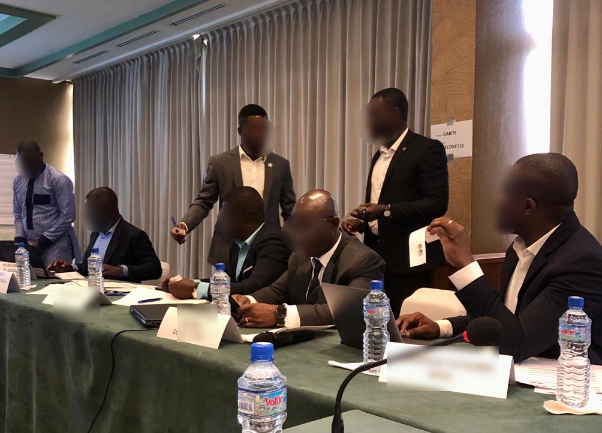
 |
xj |
30 January to 1 February 2023 - From 30 January to 1 February 2023, UNODC delivered a training on “Criminal Intelligence for Managers” to strengthen institutional capacities of Togo, Benin and Cote d’Ivoire to utilize criminal intelligence analysis as part of the development of forward-looking disruption strategies targeting organized crime groups in line with Human Rights standards. A total of 17 senior investigators of main investigative and intelligence units in West Africa attended.
Over the course of three days, UNODC combined both theory-based sessions with practical exercises to reinforce investigators’ capacity for intelligence-led policing, recalling key tools and techniques to adopt a structured analytical approach to criminal intelligence as well as main phases of the intelligence cycle. Drawing upon case studies and scenarios, participants were required to assess various levels of operational risk as well as appropriate levels of ethical and professional standards when managing intelligence processes. As a result, not only did this training bolster capability for intelligence-led operations, but further strengthened senior investigators’ capacity in supervising intelligence processes in line with Human Rights and international standards. Finally, bringing together heads of Cote d’Ivoire, Togo and Benin’s main investigative units, this training provided a platform for senior leadership to establish operational contacts and to discuss opportunities for further intelligence-sharing and police-to-police cooperation.
 |
Xx |
During the closing ceremony, Hannah Eagleton, Economic and Political Chief, U.S. Embassy in Togo, insisted on the need for informed, improved and evidence-based decisions to address the transnational nature of organized crime. She argued intelligence-led policing provided tools for priorities, resources, and tasks to be effectively managed and allocated. Meanwhile, Christian Shingiro, Peace and Development Advisor for the UN Resident Coordinator Office expressed his commitment, on behalf of both UNODC and RCO, to continue working with the United States, to provide countries with the technical assistance for effective intelligence processes in line with Human Rights standards and principles.
This training was implemented under the framework of the CRIMJUST regional project – “Strengthening criminal justice responses to drug trafficking and related organized crime in coastal francophone countries in West Africa”, funded by the Bureau of International Narcotics and Law Enforcement Affairs (INL) of the U.S. State Department, as part of its efforts to both build up intelligence and research capability and to foster inter-agency cooperation in the sub-region. It follows a 10-day criminal intelligence course and handover of computer hardware to 20 investigators from Togo and Benin in September 2022 in Cotonou.
Launched in 2016, CRIMJUST – Criminal Network Disruption Global Programme, implemented by UNODC in partnership with INTERPOL, and funded by the European Union, aims to support countries in Latin America, the Caribbean and Africa strengthen criminal investigations and criminal justice cooperation along illicit trafficking routes. In 2021, CRIMJUST received additional funds from the U.S. Bureau of International Narcotics and Law Enforcement Affairs (INL) to implement a regional project in Togo, Benin and Cote d’Ivoire “Strengthening Criminal Justice Responses to Drug Trafficking and Related Transnational Organized Crime in Coastal Francophone countries in West Africa”. This project, set to take place over three years, will look to bolster criminal intelligence capacities of investigative agencies in Togo and Benin while contributing to the further specialization of the Pôle penal, économique et financier in Côte d’Ivoire.
For more information, please visit:
- Bureau of International Narcotics and Law Enforcement Affairs (INL)
